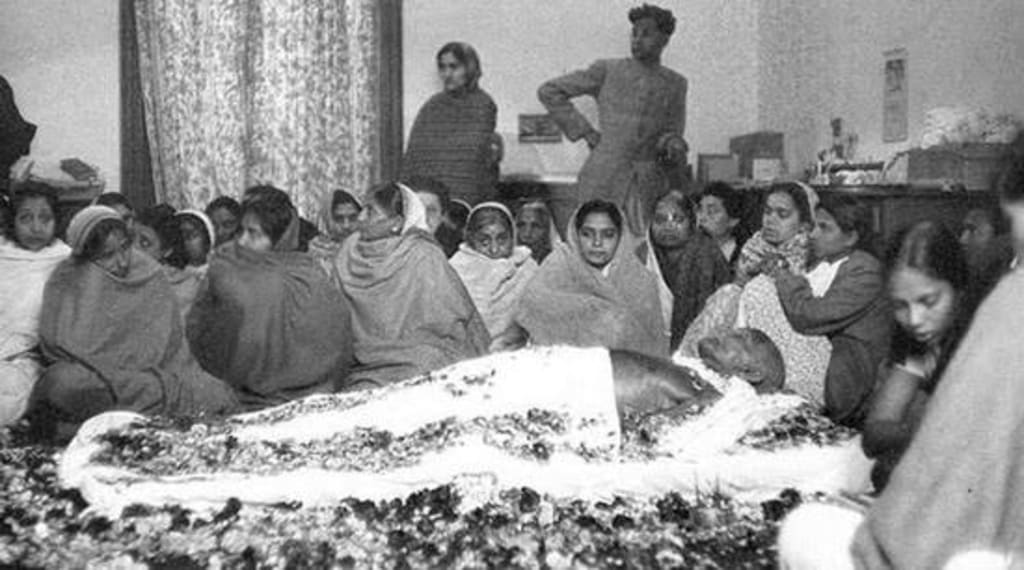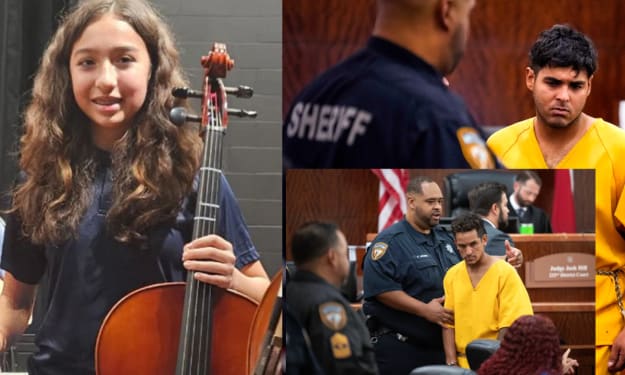The Assassination of Mahatma Gandhi
A Tragic Turning Point

On January 30, 1948, the world was shaken by the assassination of Mahatma Gandhi, one of the most prominent figures in the struggle for Indian independence. This tragic event not only marked the end of an era but also left an indelible scar on the fabric of Indian society. Gandhi, revered as the Father of the Nation, was a beacon of peace, non-violence, and unity. His assassination was a shocking act of violence that contrasted sharply with the principles he championed throughout his life.
The Fateful Day
The evening of January 30, 1948, began like many others for Mahatma Gandhi. He was at Birla House in New Delhi, preparing for his customary evening prayer meeting. Gandhi's prayer meetings were gatherings where people of different faiths came together to reflect and pray, embodying his vision of religious harmony and tolerance. As he made his way to the prayer ground, a crowd gathered around him, as it often did. Among the crowd was Nathuram Godse, a Hindu nationalist with a deep-seated grudge against Gandhi.
Godse, armed with a semi-automatic pistol, approached Gandhi on the pretext of seeking his blessings. As he bent down, ostensibly to touch Gandhi’s feet, he drew his weapon and fired three shots at point-blank range. The bullets struck Gandhi in the chest and abdomen. He collapsed to the ground, uttering "Hey Ram" – a phrase that would later be remembered as his final words. Despite immediate medical attention, Gandhi succumbed to his injuries within minutes. The news of his assassination spread rapidly, plunging the nation into grief and disbelief.
Nathuram Godse: The Assassin
Nathuram Godse was a member of the Hindu nationalist organization Rashtriya Swayamsevak Sangh (RSS) and a staunch follower of Vinayak Damodar Savarkar's ideology of Hindutva. Godse and his associates believed that Gandhi's policies of non-violence and his insistence on accommodating Muslims during the partition of India were detrimental to Hindu interests. They perceived Gandhi’s efforts to maintain Hindu-Muslim unity as a betrayal, especially after the creation of Pakistan. Godse’s disillusionment and anger culminated in the assassination, an act he believed would save India from Gandhi's "appeasement" of Muslims.
In his trial, Godse articulated his motivations, claiming that Gandhi’s actions were responsible for the partition of India and the subsequent violence. He argued that Gandhi’s influence over the Congress party and the Indian government was leading the country down a path of destruction. Despite his defense, Godse was found guilty and sentenced to death. He was executed on November 15, 1949. His act of violence, intended to silence Gandhi’s influence, ironically amplified the very ideals he opposed.
The Aftermath and Impact
Gandhi's assassination sent shockwaves throughout India and the world. Leaders and citizens alike mourned the loss of a man who had dedicated his life to the principles of truth, non-violence, and communal harmony. His death led to an outpouring of grief and a nationwide period of mourning. The assassination also sparked widespread violence, particularly against Hindu nationalist groups like the RSS, which was temporarily banned by the Indian government.
Gandhi’s death marked a critical juncture in Indian history. It underscored the deep-seated communal tensions that had been exacerbated by the partition. The nation faced the daunting task of healing and rebuilding in the wake of such a profound loss. Jawaharlal Nehru, India's first Prime Minister and a close associate of Gandhi, addressed the nation with a heavy heart, urging unity and peace. He reminded the people that Gandhi's ideals must continue to guide the nation’s path forward.
Internationally, Gandhi's assassination highlighted the global struggle for peace and justice. Leaders from around the world expressed their condolences and acknowledged Gandhi’s immense contribution to the global discourse on non-violence and civil rights. His philosophy of non-violent resistance influenced numerous movements and leaders, including Martin Luther King Jr. and Nelson Mandela. The tragedy of his death reinforced the relevance and urgency of his message.
Legacy of Mahatma Gandhi
Despite the tragic end to his life, Mahatma Gandhi’s legacy endures. His principles of Satyagraha (truth and non-violence) continue to inspire movements for social justice and political change worldwide. Gandhi’s vision of an inclusive and harmonious society remains a guiding light for India and the global community. His teachings on self-reliance, simplicity, and environmental sustainability are increasingly relevant in today’s world, grappling with issues of inequality, conflict, and ecological degradation.
Gandhi's assassination serves as a stark reminder of the perils of intolerance and the destructive power of hatred. It underscores the importance of vigilance in safeguarding democratic values and promoting dialogue and understanding among diverse communities. The ideals that Gandhi lived and died for – non-violence, truth, and justice – are more pertinent than ever in a world often torn apart by violence and discord.
In commemorating Mahatma Gandhi, it is essential to reflect not only on his life and achievements but also on the circumstances surrounding his death. The lessons from that fateful day in January 1948 continue to resonate, urging us to strive for a world where peace and compassion prevail over hatred and violence. Gandhi’s life was a testament to the power of the human spirit to overcome adversity and achieve greatness through humility and perseverance. His legacy is a call to action for each of us to contribute to a more just and peaceful world.
About the Creator
Enjoyed the story? Support the Creator.
Subscribe for free to receive all their stories in your feed. You could also pledge your support or give them a one-off tip, letting them know you appreciate their work.






Comments
There are no comments for this story
Be the first to respond and start the conversation.